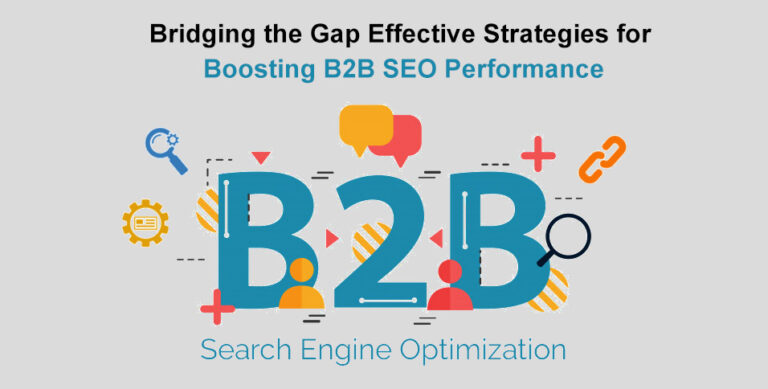Consumers today are paying closer attention to the impact of their purchases. People want to know how products are made, where materials come from, and whether brands are making an effort to reduce their environmental footprint. Customers expect companies to go beyond words and take real action toward sustainability. As a result, manufacturers that ignore these expectations are losing ground to those that focus on environmentally responsible practices.
This shift in consumer behavior has put pressure on businesses to rethink their approach. More companies are integrating sustainable materials, energy-efficient production, and waste reduction into their operations.
From personal care products to home essentials, buyers are looking for transparency and accountability. Below, we explore the key reasons why manufacturers with strong environmental commitments have a clear advantage in today’s market.
The Appeal of Sustainable Manufacturing
People no longer want to feel guilty about the products they buy. They want to support companies that reduce waste, lower pollution, and make responsible choices in their manufacturing processes. When brands put sustainability at the core of their business, they gain trust and loyalty from customers who appreciate companies that share their values. Responsible manufacturing has become a competitive advantage in today’s time.
Melaleuca: The Wellness Company greatly exemplifies this shift. Founded by Frank VanderSloot, Melaleuca leads the industry in creating environmentally friendly products using biodegradable and naturally derived ingredients. The company also reduces water usage, plastic waste, and fuel consumption by using super-concentrated formulas. More brands are following this model, proving that sustainability and smart business practices go hand in hand.
More Transparency and Green Manufacturing
People have grown tired of vague promises and empty marketing buzzwords. Claims like “eco-friendly” or “sustainably made” don’t mean much unless companies provide real proof of their efforts. Consumers want to see the details—where materials are sourced, how products are made, and what impact a company’s operations have on the environment. Those who openly share this information gain credibility, while those who hide behind marketing terms risk losing trust.
Brands that prioritize transparency often offer third-party certifications, publish impact reports, and give customers a behind-the-scenes look at their sustainability efforts. Whether it’s through detailed product descriptions, clear sourcing information, or direct engagement on social media, companies that communicate honestly with their customers build stronger relationships. People don’t expect perfection, but they do expect honesty.
Shift from Disposable to Long-Lasting Products
Consumers are becoming more mindful of product lifespan. Instead of buying cheap, disposable items that wear out quickly, many prefer well-made, durable products that last longer. This shift isn’t just about saving money—it’s about reducing waste and making more thoughtful purchasing decisions. Customers are no longer impressed by low-cost, mass-produced goods if they contribute to environmental problems.
This means manufacturers need to focus on quality over quantity. Brands that design products for long-term use, offer repair options, or create modular designs that can be upgraded instead of replaced are gaining a loyal following. Customers are willing to invest in well-crafted items that don’t need constant replacing.
Eco-Friendly Packaging and Purchasing Decisions
Customers are paying more attention to packaging than ever before. Excessive plastic, non-recyclable materials, and wasteful designs are major red flags for today’s buyers. Many consumers actively avoid brands that still rely on unnecessary or harmful packaging, opting instead for products that come in biodegradable, recyclable, or reusable containers.
Manufacturers that invest in sustainable packaging solutions are winning over customers who want to make responsible purchasing choices. Minimalist packaging, compostable materials, and refillable product options are becoming industry standards. When a company takes the extra step to reduce packaging waste, it signals that they are committed to long-term sustainability rather than just making quick profits.
Green Manufacturing as a Competitive Advantage
Companies that integrate environmentally responsible practices into their manufacturing processes set themselves apart from competitors. Consumers are actively looking for brands that share their values, and those that embrace sustainability gain a loyal customer base.
Green manufacturing can also lead to cost savings over time. Energy-efficient production lines, waste reduction strategies, and sustainable material sourcing can lower operating expenses. As governments and regulatory bodies tighten environmental standards, businesses that have already implemented green practices will be ahead of the curve. Companies that treat sustainability as an investment rather than a burden position themselves as industry leaders while meeting growing consumer demand.
Ethical Sourcing
Customers today want to know where the product comes from and who is making it. Ethical sourcing has become a key factor in purchasing decisions as more consumers demand fair wages, safe working conditions, and responsible material sourcing. Brands that fail to handle these concerns risk losing trust, especially in an era where supply chain transparency is easier to track than ever.
Manufacturers who work with ethical suppliers, support fair trade, and avoid exploitative labor practices are building stronger relationships with their customers. Certifications, supply chain audits, and public commitments to ethical business practices show buyers that a company is serious about making a positive impact.
Role of Smart Technology
Technology is playing a bigger role in sustainability than ever before. From AI-driven production lines to energy-efficient smart factories, manufacturers are using digital tools to minimize waste and maximize efficiency. Customers appreciate when brands use innovation to improve sustainability rather than relying on outdated, resource-heavy methods.
Automated systems can optimize material use, reduce emissions, and improve recycling processes within manufacturing plants. Smart sensors can monitor energy consumption, while AI-powered logistics can reduce unnecessary transportation emissions.
How Companies Can Adapt
Customers expect real action, not mere promises, when it comes to sustainability. It’s no longer enough to slap an “eco-friendly” label on a product—businesses must show measurable steps toward reducing their environmental impact. Whether through public sustainability goals, detailed reports, or transparent sourcing information, manufacturers need to communicate their efforts clearly.
Companies that listen to consumer concerns and adapt to market shifts will continue to thrive. Investing in green technology, improving supply chain efficiency, and offering recycling or take-back programs show customers that a brand is committed to sustainability in the long run. Consumers want brands to evolve with them, and those that stay responsive to environmental expectations will build stronger relationships with their audience.
Manufacturers that embrace sustainability, transparency, and responsible production are leading the industry, while those that ignore these expectations are losing relevance. Eco-conscious packaging, durable product design, and green manufacturing practices are no longer optional. They define what makes a company competitive in today’s market.
Also Read: The Environmental Impact of Vehicle Types – Explored
















